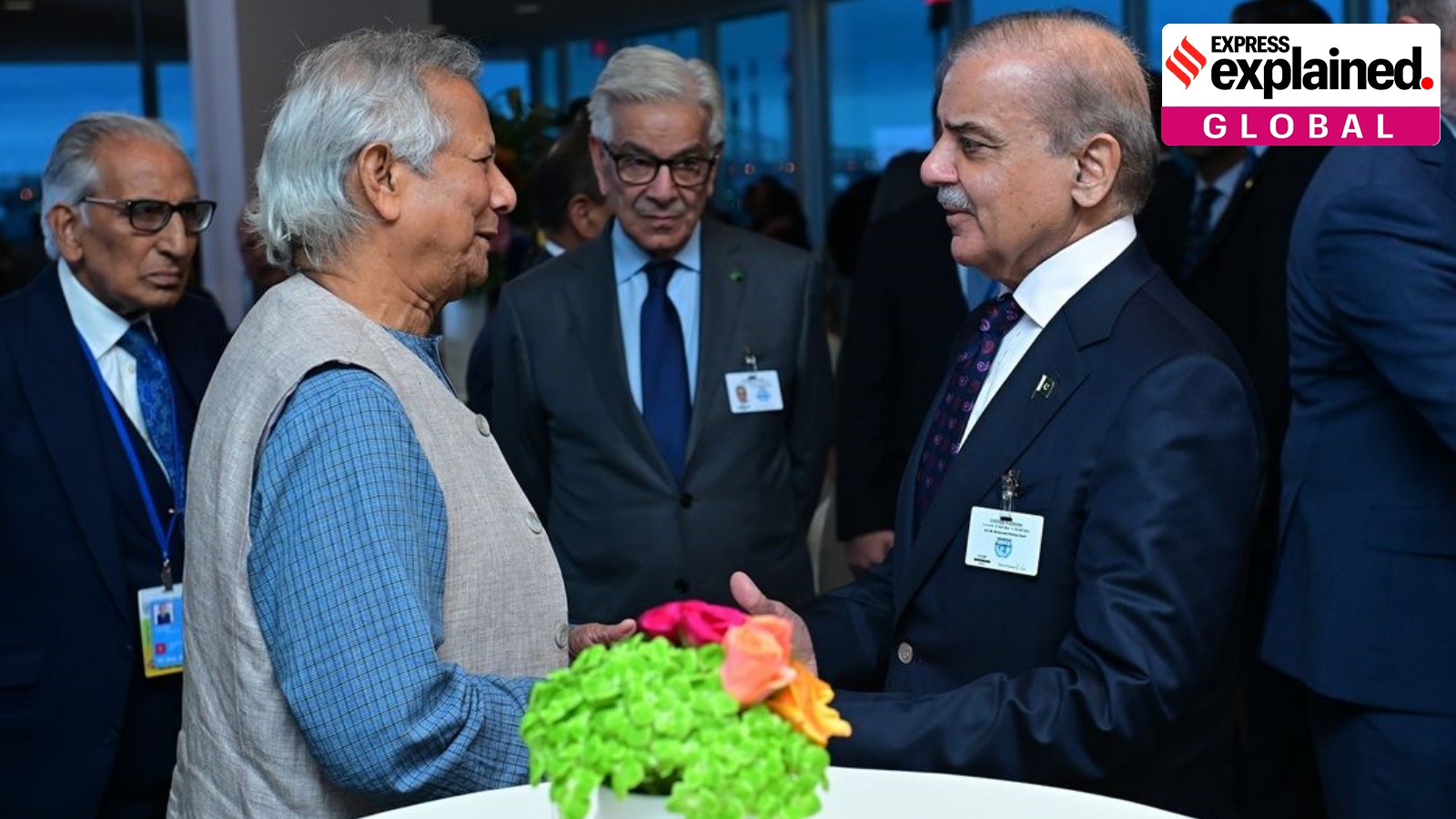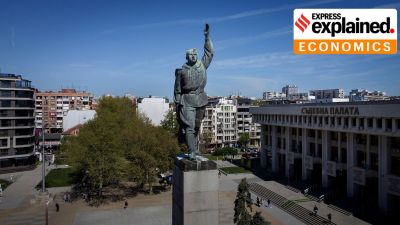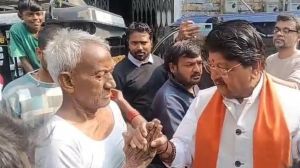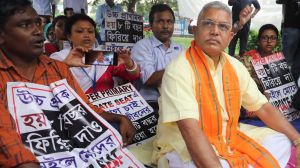Why the arrival of a Pakistani cargo ship in Bangladesh could mark a turning point in the subcontinent’s history
The shadow of 1971 has long loomed over the relationship between the two countries. But with the ouster of the pro-India Prime Minister Sheikh Hasina, the powerful interests in both Islamabad and Dhaka have seen an opportunity for a reset
 Chief Advisor (Head of Government) of the Interim Government of Bangladesh, Dr. Muhammad Yunus receives Prime Minister Muhammad Shehbaz Sharif at the reception to commemorate 50th Anniversary of Bangladesh’s membership in the United Nations in New York on September 25. (Photo: Instagram/shebazsharif)
Chief Advisor (Head of Government) of the Interim Government of Bangladesh, Dr. Muhammad Yunus receives Prime Minister Muhammad Shehbaz Sharif at the reception to commemorate 50th Anniversary of Bangladesh’s membership in the United Nations in New York on September 25. (Photo: Instagram/shebazsharif)A cargo ship from Karachi docked at Chattogram (formerly Chittagong) port on Wednesday (November 13), marking the first ever direct maritime contact between Pakistan and Bangladesh.
Described by the Pakistan High Commission in Dhaka as “a major step in bilateral trade”, the development could signal a significant shift in the historically tenuous relationship between the two countries.
This shift, however, has been on the cards ever since the ouster of Prime Minister Sheikh Hasina in August this year.
The shadow of 1971
The shadow of 1971 has long loomed large over the bilateral relationship between Bangladesh and Pakistan.
During the nine-month long Mukti Juddho (Liberation War) in 1971, the Pakistani military and its collaborators committed innumerable atrocities, the memories of which are deeply imprinted in Bangladesh’s national psyche. Some 3 million people were killed, thousands were tortured and raped, and millions fled their homes to escape Pakistani brutality.
Pakistan has never apologised or expressed regret for its crimes — to the detriment of the bilateral relationship between Dhaka and Islamabad.
Bangladeshi-American political scientist Ali Riaz told The Diplomat in 2021, “A better relationship [between the two countries] requires Pakistan’s initiative to address the 1971 war, especially the genocide perpetrated by the army… [an] unconditional public apology from Pakistan is long overdue … No nation can move forward without confronting its dark past”.
Instead, Islamabad has gone to great lengths to shift the focus from its atrocities to the role of New Delhi in the momentous events of 1971. In the Pakistani narrative, Bangladesh’s War of Liberation was an Indian conspiracy to break Muhammad Ali Jinnah’s Pakistan project, not a war waged by an oppressed people against their oppressor.
This narrative serves the interest of the Pakistani military, which has for decades used the India bogey to amass more and more power in the country’s polity — and makes any potential apology for war crimes unlikely. For Pakistan’s civilian governments, such an apology would require political capital most (if any) do not have.
But given how the Liberation War has remained — at least till very recently — a very emotive issue in Bangladesh politics, improving relations in absence of a proper apology has proved to be difficult.
Hasina, Pakistan & India
Bilateral relationships have been particularly sour under certain governments in Dhaka, most notably, under Sheikh Hasina, central to whose political agenda was seeking justice for atrocities perpetrated during the Liberation War.
During her time in office (1996-2001, 2009-2024) she ruthlessly prosecuted “collaborators” or razakars for their war crimes in 1971. She set up the International Crimes Tribunal in 2010 to prosecute war criminals, and also banned the historically pro-Pakistan Jamaat-e-Islami.
In 2013, Jamaat leader Abdul Quader Mollah was convicted by the ICT of killing 344 civilians and other war crimes. He became the first of many razakars to be executed during Hasina’s reign. Pakistan’s Interior Minister at the time, Chaudhry Nisar Ali Khan, described Mollah’s execution as “very unfortunate” saying that “there is no doubt that he was hanged because of his loyalty and solidarity with Pakistan in 1971”.
This, of course, did not go down well with Hasina and in Bangladesh. After the Pakistan National Assembly passed a resolution condemning Mollah’s execution, Hasina said that this “proved that it never accepted the victory of Bangladesh in the Liberation War of 1971, and they still have allies in Bangladesh,” The Daily Star reported.
Simultaneously, Hasina also brought Bangladesh ever closer to India. Courtesy New Delhi’s assistance to the Mukti Bahini in the Bangladesh Liberation War, India had always held a special place in the hearts of many Bangladeshis. Hasina herself enjoys a close personal relationship with the Nehru-Gandhi family, and she was given shelter in New Delhi after her father Sheikh Mujibur Rahman’s assassination in 1975.
During Hasina’s tenure, her clampdown on terrorism and religious extremism was the strategic glue that bound successive Indian governments to her regime, and fostered greater economic and cultural cooperation.
A new opening for Pakistan
Three facts around Hasina’s ouster in September are notable in context of what is happening now.
First, Hasina for the longest time had reaped political mileage from her party and family’s contribution in Bangladesh’s liberation. But as the students’ protests showed, branding protestors as razakars simply did not work amidst real economic and social concerns plaguing the country’s population. For the younger generation of Bangladeshis, who did not themselves live through Pakistan’s oppression and the Liberation War, the issue seems to be far less resonant than it used to be for previous generations.
Second, there was also some resentment among Bangladeshis for Hasina “cozying up” to New Delhi. Many felt that India was too involved in the country’s matters, and some of the rage directed at Hasina manifested in terms of what has been described as an “anti-India” sentiment. For instance, a mob in August vandalised and torched the Indira Gandhi Cultural Centre (IGCC), the hub of Indian cultural activity in the Bangladeshi capital for over five decades.
Third, there has always existed a minority narrative in Bangladesh that saw the events of 1971 not in terms of a War of Liberation and the triumph of Bengali nationalism, but as a tragedy of the Muslim nation and a betrayal of the founding promise of Partition. The Islamist Jamaat-e-Islami, which opposed the creation of Bangladesh and collaborated with the Pakistan army, has a strong presence in the post-Hasina dispensation in Dhaka.
For the powers that are in Pakistan, all of this makes the situation ideal for extending a friendly hand to Bangladesh. Multiple Pakistani editorials and op-eds have made this case in the months following Hasina’s departure from Dhaka.
“Clearly, the time has come to extend a hand of friendship towards Bengalis and Bangladesh… The bitter feelings of 1971 should be set aside by both Pakistan and Bangladesh to rebuild their relations,” retired Pakistani diplomat Burhanul Islam wrote in a news portal Paradigm Shift.
The interim government in Dhaka too, so far, has responded positively to Islamabad’s overtures. Interim Prime Minister Muhammad Yunus met his Pakistani counterpart Shehbaz Sharif at the United Nations General Assembly in New York in September, where he emphasised upon the need to revitalise bilateral cooperation, and turn a “new page”.
- 01
- 02
- 03
- 04
- 05






































